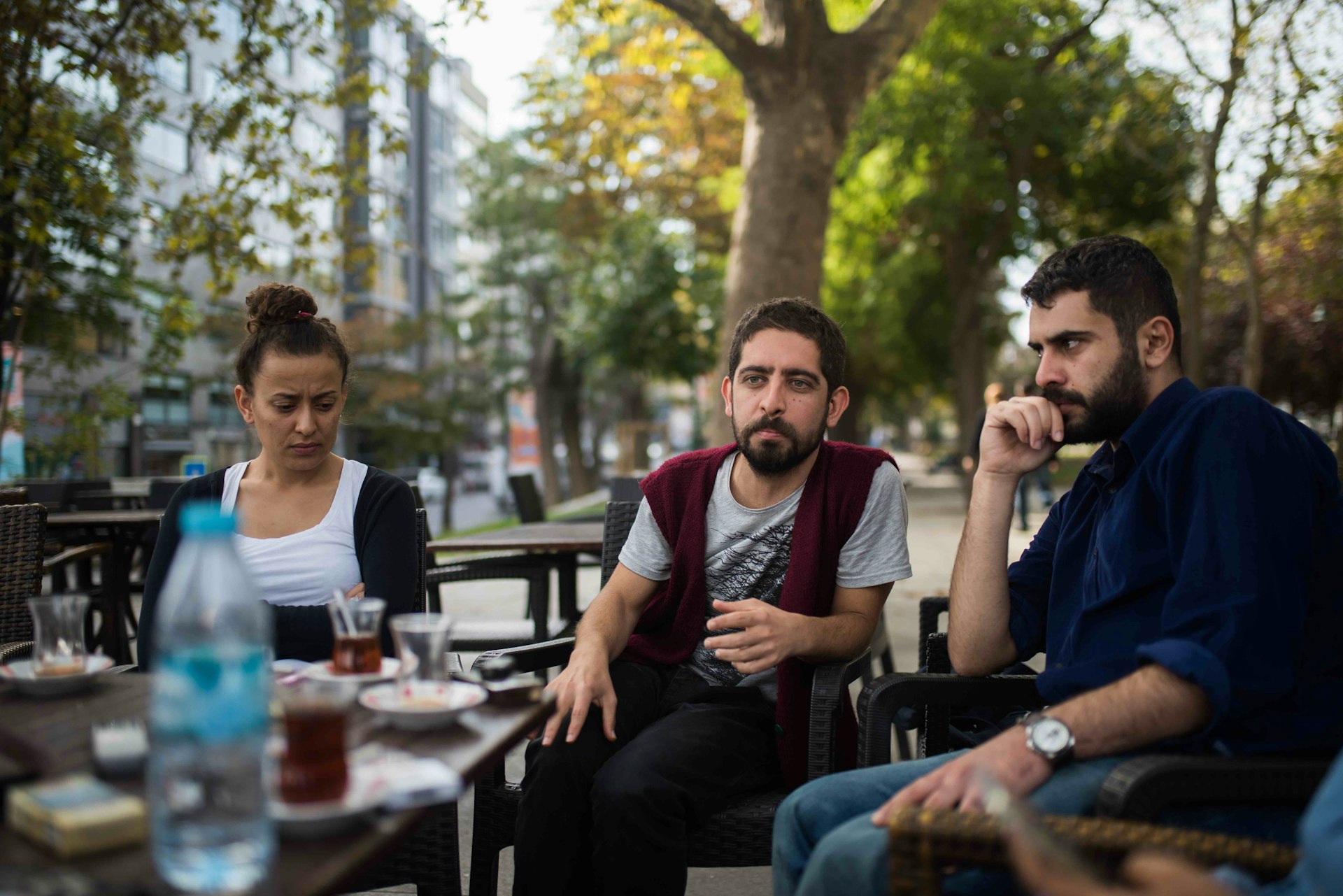
The young lives caught between dissent and terror in Turkey
- Text by Lorena Rios
- Photography by Jennifer Ciochon
It’s a warm October morning in Istanbul, and five young men and women are sitting in the city’s famous Gezi Park. This was once a place symbolic of civil resistance, now eclipsed by the nationalist fervour that inundated the adjacent Taksim Square following a military coup attempt just a few months earlier.
The five friends sit among journalists and trees in the empty park, and I take my place alongside them, the faint smell of urine only a slight distraction.
Sipping tea and smoking cigarettes, they discuss the state’s terrorism charges against them, the months spent in prison, and how each is trying so hard to move forward.
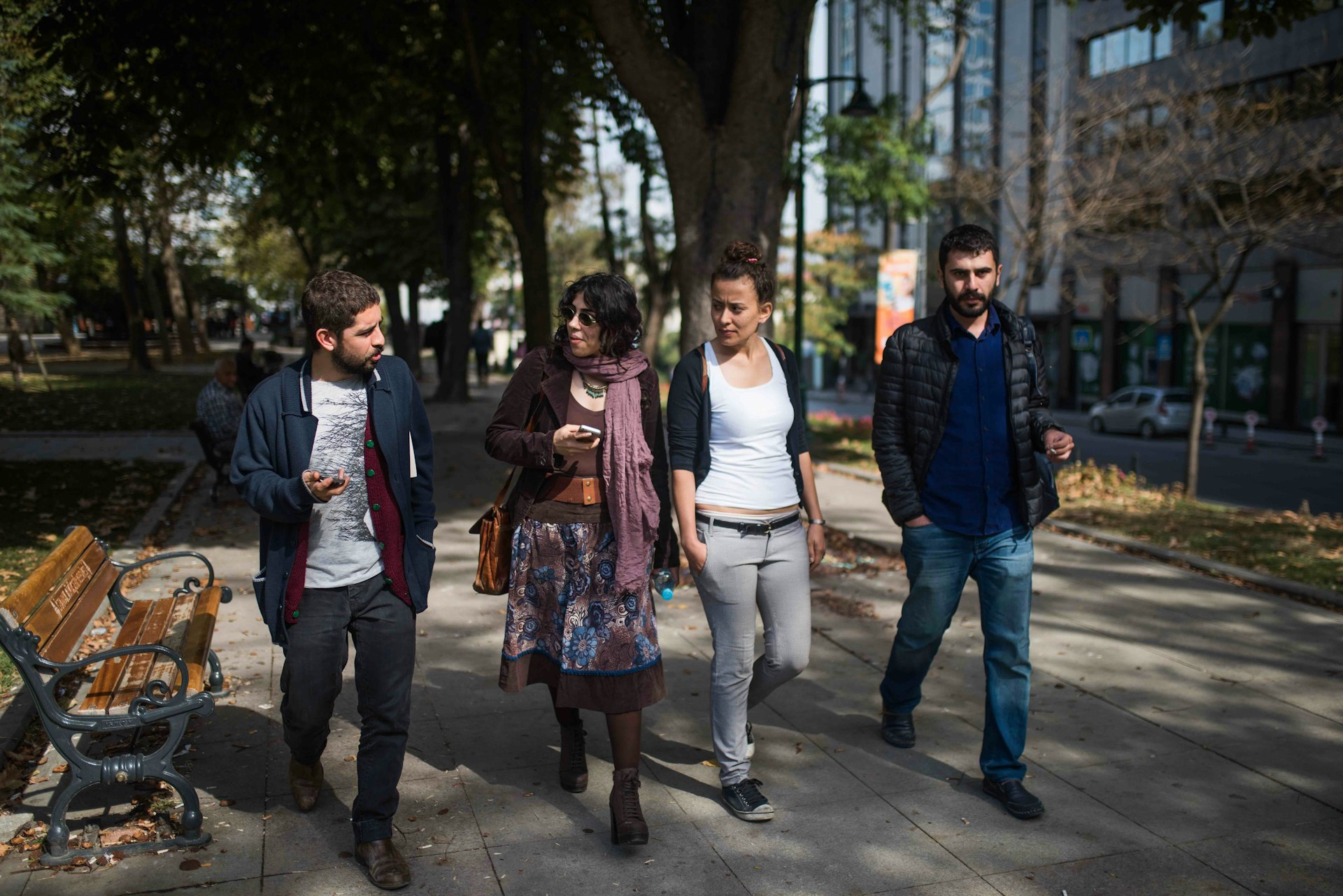
The Case
Back in January 2016, Heja Turk, Julide Yacizi, Mehtap Demirci, Hisyar Aydin and Çağrı Kurt were all detained by Turkish authorities under terrorism charges, the impact of which they’re still feeling to this day.
They stand accused of being members of the Kurdistan Workers’ Party (PKK), a separatist Kurdish militia labelled a terrorist group by the Turkish state. Membership of the PKK is now illegal in Turkey. Each of the five, however, say these allegations are simply untrue.
The group have now been released on bail, but face between six and twenty-four years behind bars if successfully convicted.
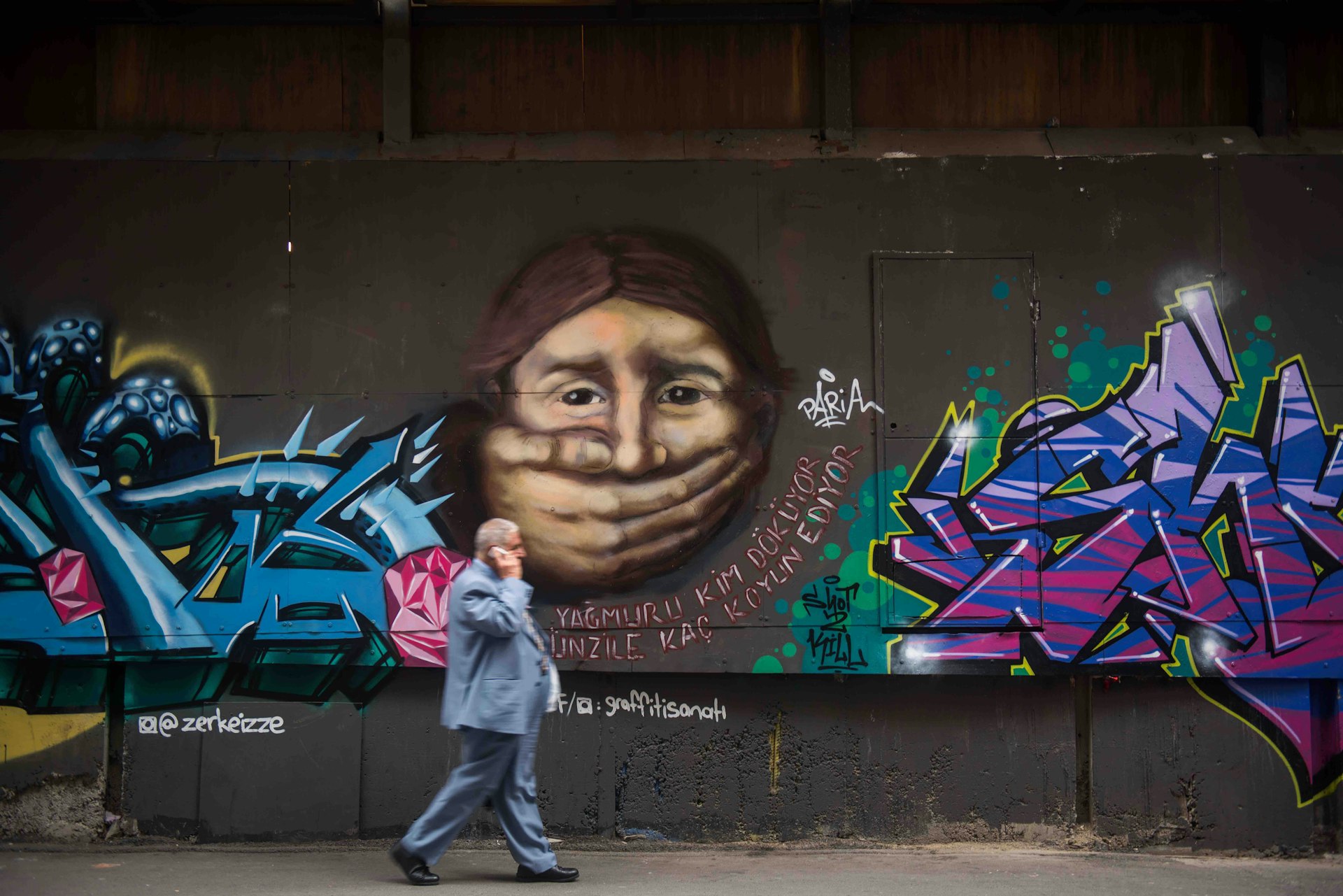
At the time the five friends knew of Sinem, but she went by a different name, ‘Funda Kaya’. “Sinem had problems with her family in 2009,” explains her lawyer, Razie Turgut. “Because of that she was using a fake ID, she is hiding from her family.”
Heja had rented her room to Sinem through Airbnb. Cagri had known Sinem for a while too. The others are clear: they don’t know Sinem well at all, only through Heja and Cagri.
“There is no evidence in this case,” explains Levent Piskin, the lawyer representing Mehtap, Heja, and Çağrı a few weeks prior to his own arrest. “The accusations started off as a car bomb, then to a car that has a mechanism that can potentially explode, and then to a car that has a USB flash drive with a video of how to build a homemade bomb.”
According to the lawyers, the police found this video on their second search of the car, which set off alarm bells.
Razie Turgut, Sinem’s lawyer, suggests that the police couldn’t find any evidence linking the car with her client. “The car has another owner and he was a worker in Boğaziçi University. Now he has an arrest warrant in his name for this case.” According to Razie, the flash drive doesn’t even contain Sinem’s fingerprints.
It seems the relationship between the friends and their tenuous connection to Sinem that appears to be the foundation of all the charges.
The Arrests
On the same day as Turkish intelligence impounded the car, Heja and Mehtap were at home in the apartment they were sharing.
As Mehtap arrived home from work, she noticed a heavy police presence outside the window. “I was changing in my room to enter the shower when I heard whispers,” she recalls. “I saw snipers and came out of my room to warn Heja that the police were here.” At this stage, the girls had no idea why.
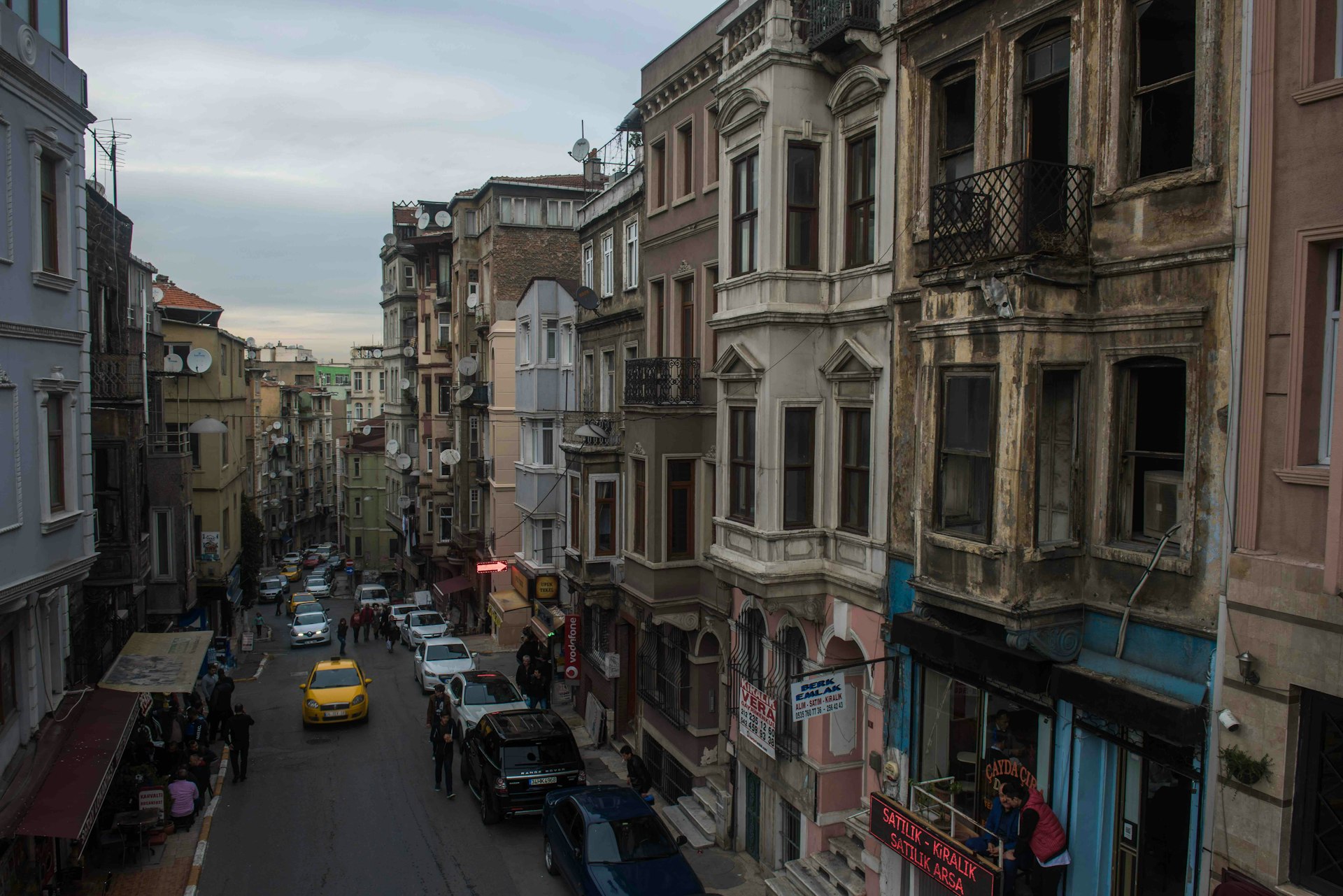
The anti-terror squad didn’t scare these two women, they sat inside the house waiting for a knock on the door, which didn’t take long.
“They were looking for a bomb but the officers couldn’t fit through the door frame,” says Mehtap. The women mocked the officers, giving them advice on how best to arrange their equipment, in what was a very bizarre situation.
The Kurdish situation
Since June 2015, the PKK and Islamic State militants have staged at least 15 major attacks in Turkey, killing more than 330 people.
“If we examine the terrorist acts that have happened in the east and southeast of Turkey since January, the terrorist group PKK has systematically and conscientiously tried to bring war to the lives of civilians,” explains Ibrahim Halil Erkan, the Vice President at the Human Relations Department of the Justice and Development Party (AKP).
However the European Union and international human rights groups claim that Turkey’s poorly defined anti-terror laws serve as a tool for the state to target members of their political opponents.
“All of the laws that have gone into effect are to strengthen our fight against terrorism,” says Erkan.
After the military coup attempt on 15 July this year, the Turkish government has carried out purges that have hit over 125,000 public employees. Their punishment is down to alleged ties with Fetulah Gülen, the Muslim cleric living in self-exile in the United States who stands accused of orchestrating the coup.
Heja
“Even when I’m late I can put on my lipstick,” says Heja, as she walks into a sleepy café one Saturday morning in late October to meet me. Her name means “precious”, an adjective that suits her good looks and self-confidence.
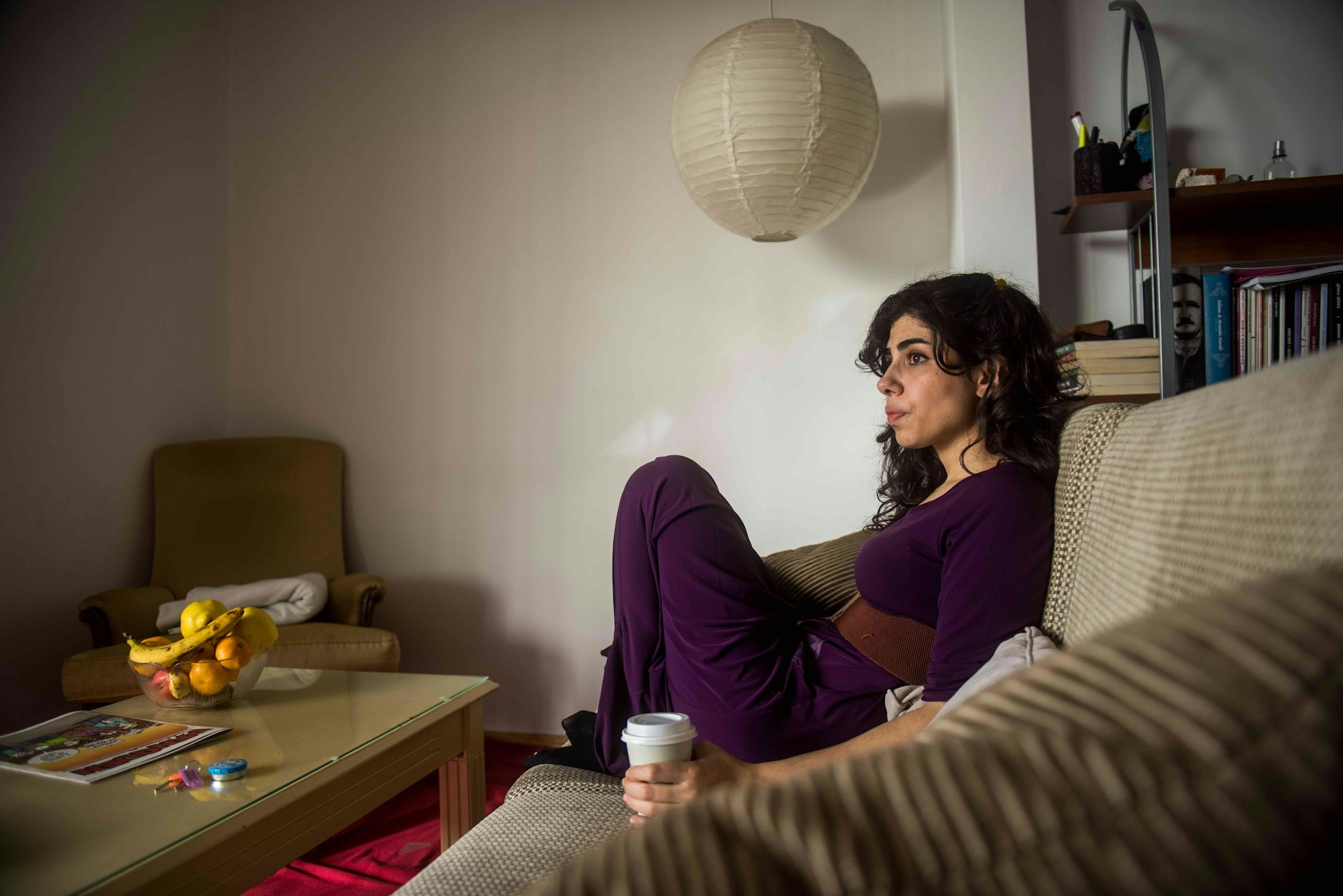
The case of the five friends made headlines in Turkey in part due to the fact that Julide, Çağrı and Hisyar are students at two of Istanbul’s most prestigious universities. But also in part due to Heja’s grandfather, Ahmet Turk, a well-known Kurdish nationalist politician who was recently detained and removed from his post as mayor of Mardin, a town in Turkey’s southeast.
At best, this relationship gives the students visibility. But At worst it serves as an incontrovertible political tool against them.
Heja faces the longest sentence of the group, up to twenty-four years in prison. She is not only accused of being a member of the PKK, but of insulting the president. “To be Kurdish is political,” explains Heja. “You don’t have a choice.”
Mehtap
Upon meeting with journalists for the first time that October morning in Gezi Park, Mehtap was the least enthusiastic about the prospect of talking.
But in the privacy of her home, Mehtap lets her guard down to discuss the impact these terrorism charges are having on her every day. “I had only been to the police station once before to pick up my driver’s license,” she tells me, sat on her bedroom floor. Now she has six months of experience inside a cell.
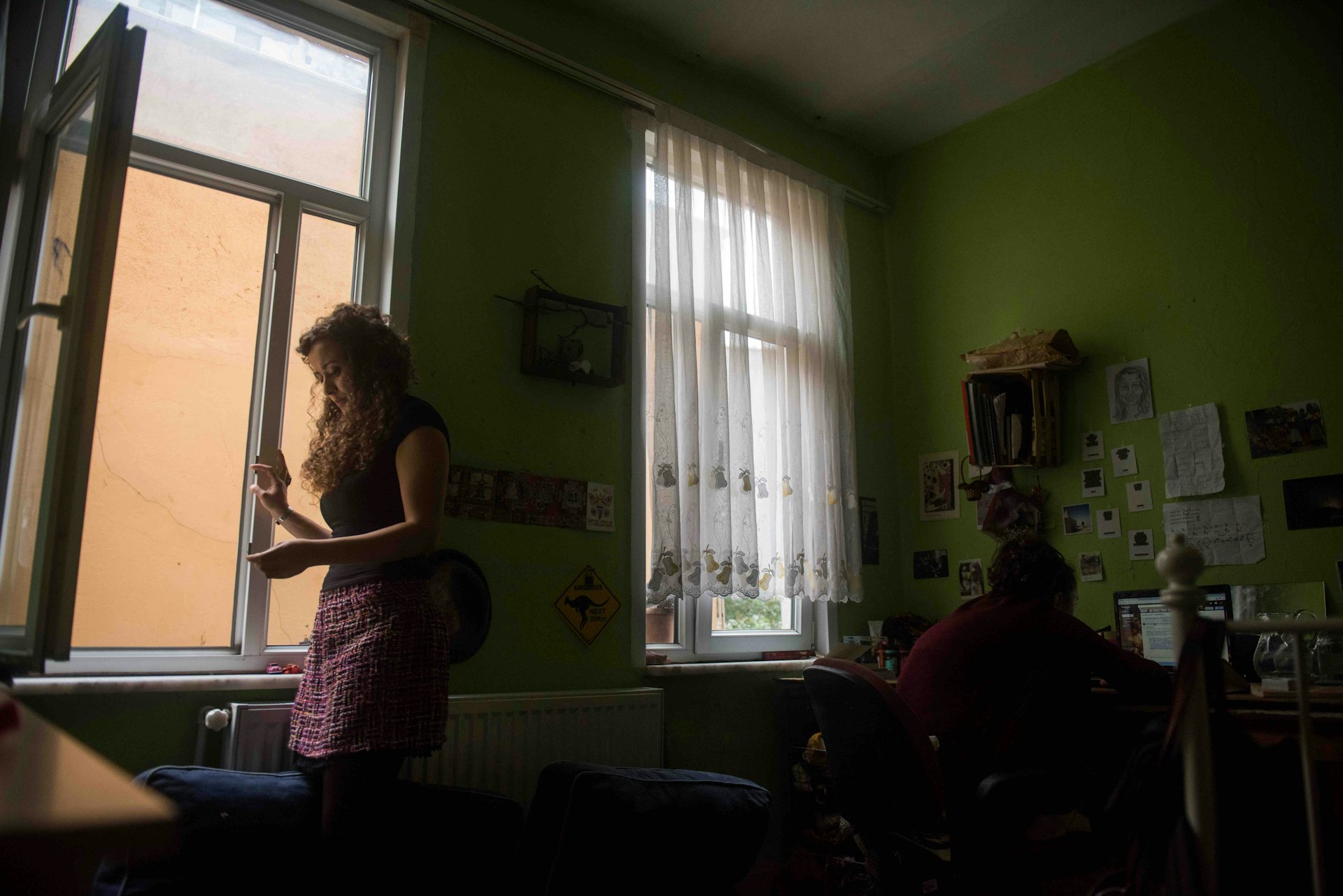
“You can’t feel sorry for yourself in there because there’s people who have been there for 22 years. You can’t ask ‘why is this happening to me?’” During her six-month-confinement, she spent time reading, getting through some fifty books.
“I was criticised for reading too much, but it was a door to another world.”’
Mehtap painted at night while her cellmate slept, recycling canvases by painting on both sides. As the months went by, her lawyers continued to assure her that she’d be released imminently, there being no evidence presented. But as the months went by, she remained locked up.
“I was mad at [the government],” she explains. “I was not thinking why this was happening to me, but why they were doing this.”
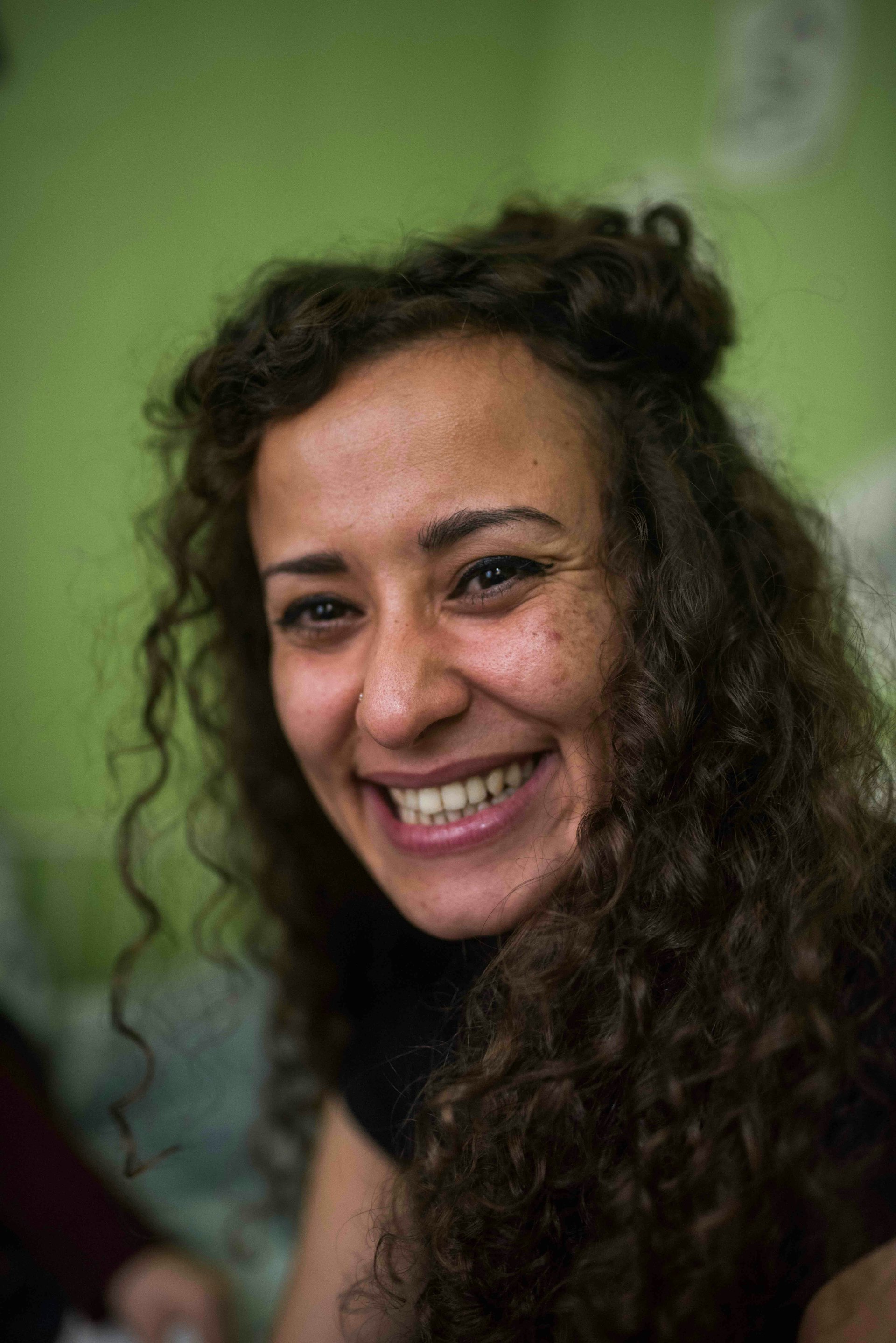
“Sleeping too much numbs you, you can lose yourself,” she continues. “You can become a good scholar or you can become numb.”
Inside prison, the women’s lives followed the beat of a strict schedule. They’d wake up at eight and wait for the guards to do a body count. “Every day felt the same,” Mehtap recalls. “Rain was our only connection with nature.”
Hisyar
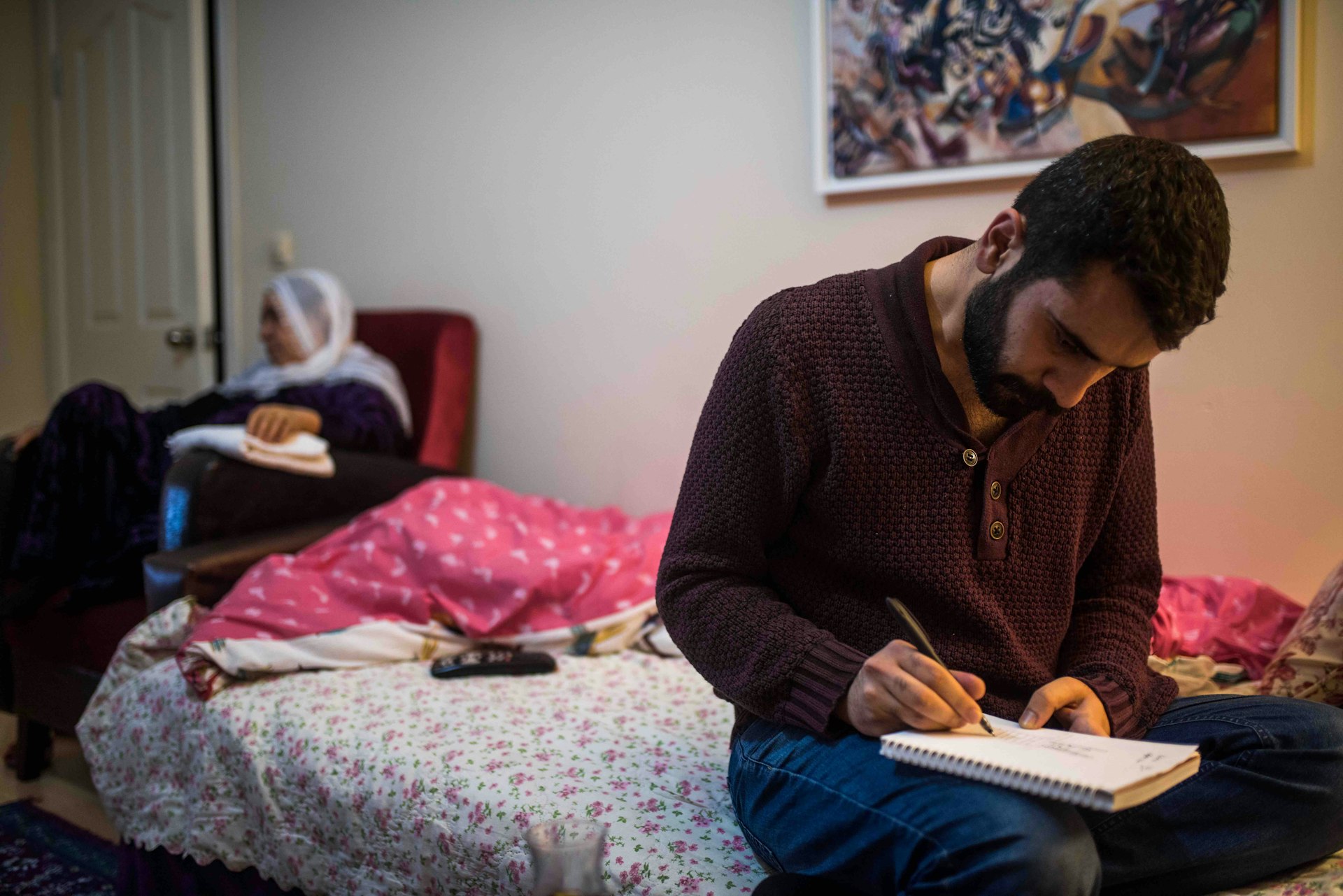
“The police came to arrest me wearing shields, masks, carrying their weapons, swearing and insulting me” he explains. “This is the part I don’t understand. It’s normal to get arrested for distributing pamphlets or being in a protest, but not for terrorism.”
He spent his days writing letters to his friends and playing games with his cellmates. “I wrote about nine to ten letters a week,” he says. “There is only one door and only your cellmates calling your name.”
Çağrı
“For supporters of anti-terror laws, if you are Kurdish, you have the potential to be a terrorist,” says Levent, Çağrı Kurt’s lawyer, in a meeting before his client’s trial. “[The government] is sending a message to the youth telling them ‘you must not be political; you must not be an opponent.’”
Çağrı looks at the Kurdish issue as an academic, relying on history and theory to convey his opinions. Before his arrest, he helped organise symposiums on Kurdish studies at Bilgi University in the city, where he met Heja and others.
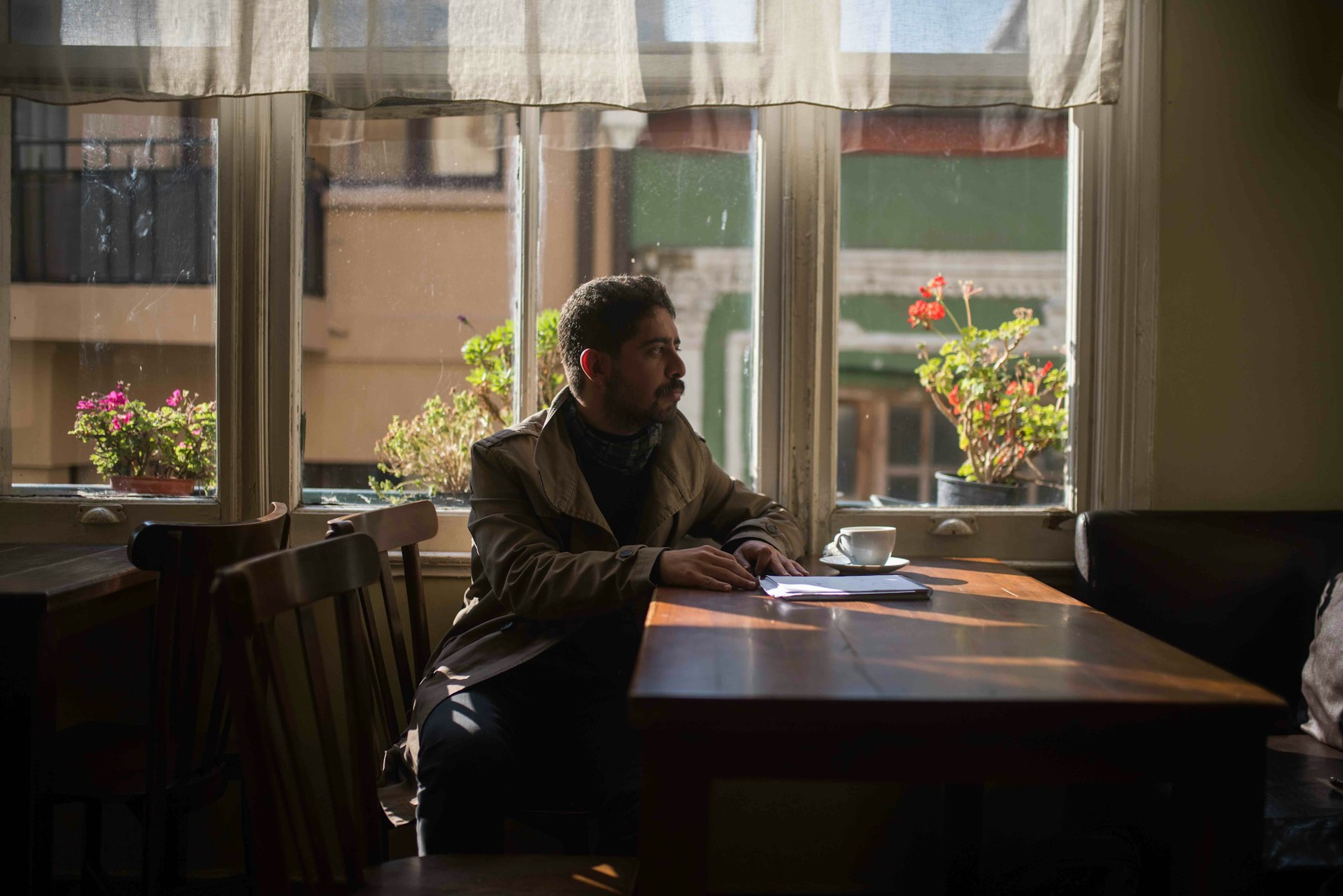
“How should we live?” asks Çağrı, who like Heja spent nine months in prison thanks to this case. He talks on the terrorism charges against him and other Kurds during a tumultuous time in the majority-Kurdish southeast. In July, 2015 a longstanding ceasefire collapsed between the Turkish government and the PKK, which has resulted in violence and a clampdown on pro-Kurdish supporters.
“Kurds don’t have an identity problem,” says Çağrı. In the current political climate, most people shy away from talking about the PKK’s armed resistance or discussing the pro-Kurdish People’s Democratic Party (HDP) political platform, but not Çağrı.
The 28-year-old political science student is interested in Kurdish studies, meaning Kurdish culture, history and resistance. For him, the Kurdish identity poses an existential question that encourages Kurds to create a communal identity. “[Posing this question] helps us find meaning in our lives, in Turkey and our world,” he says.
Çağrı doesn’t talk about his time in prison, but only laments one thing. “I lost my English in prison,” he says. Like his friends, he also spent most of his time reading in prison, everything from novels to sociology books. While his trial is ongoing, he plans to build up his English so that he can pursue a PhD in Europe.
Julide
Boğaziçi University sits right across from the body of water that graces its name.
Jülide Yacizi is sat on a bench looking over both. She talks ardently about her university’s academic excellence, liberal principles, independence, and reputation as a hub for freedom of speech.
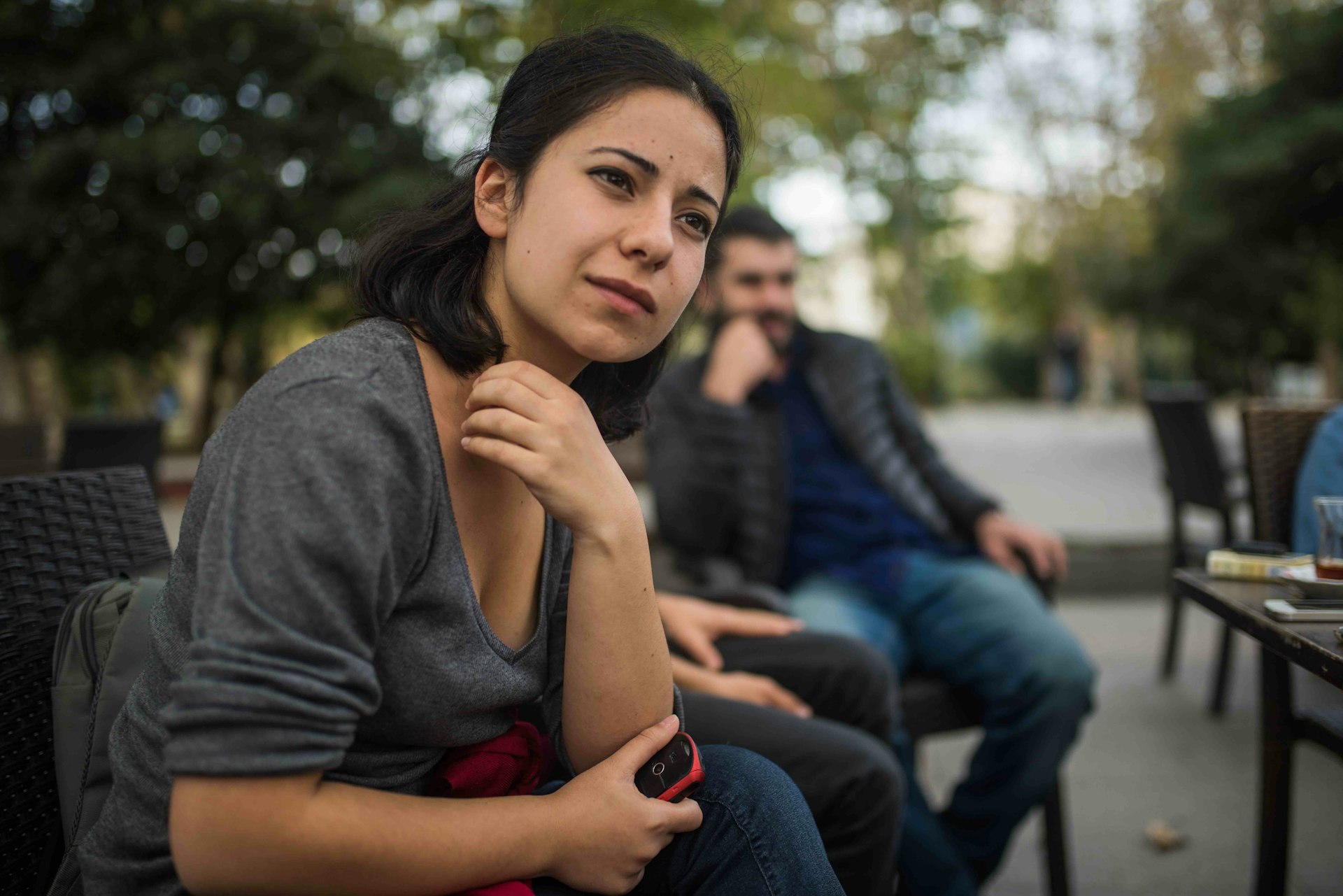
Given that her trial is still ongoing, the philosophy student must stay on the fringes of any school activities that could get her detained.
“I don’t feel very weak or upset,” says Jülide slowly. The philosophy student had slept just a few hours the night before, balancing her life between classes, the ongoing trial, and student activities in campus. She doesn’t like to talk about her case and considers western indignation towards it as “orientalist.”
“There are very important things in Turkey and in our lives,” she explains. “One of the arrested MPs [from the HDP] is a friend, one of our friends went to Cizre and was killed, a friend’s brother was arrested, and that guy over there faces a big possibility of being arrested.” She points to a student across from her. “We learn how to deal.”
The future
The friends’ court date on 16 November 2016 started an hour late. The presiding judge was new to their case, despite the fact that they have been on trial for a year. The hearing lasted about two hours, the defendants each told me the judge showed signs of boredom and disregard.
The five friends sat next to each other, whispering into each other’s ears from time to time. They were not acquitted that day, and Heja cried upon hearing the verdict. Their trial is still ongoing.
Heja calls herself a Kurdish language activist. Whether it is through the translation of “Waiting for Godot” into Kurdish, dubbing children’s cartoon shows for Kurdish channels in Turkey, interpreting in court trials and conferences, she keeps her language alive.
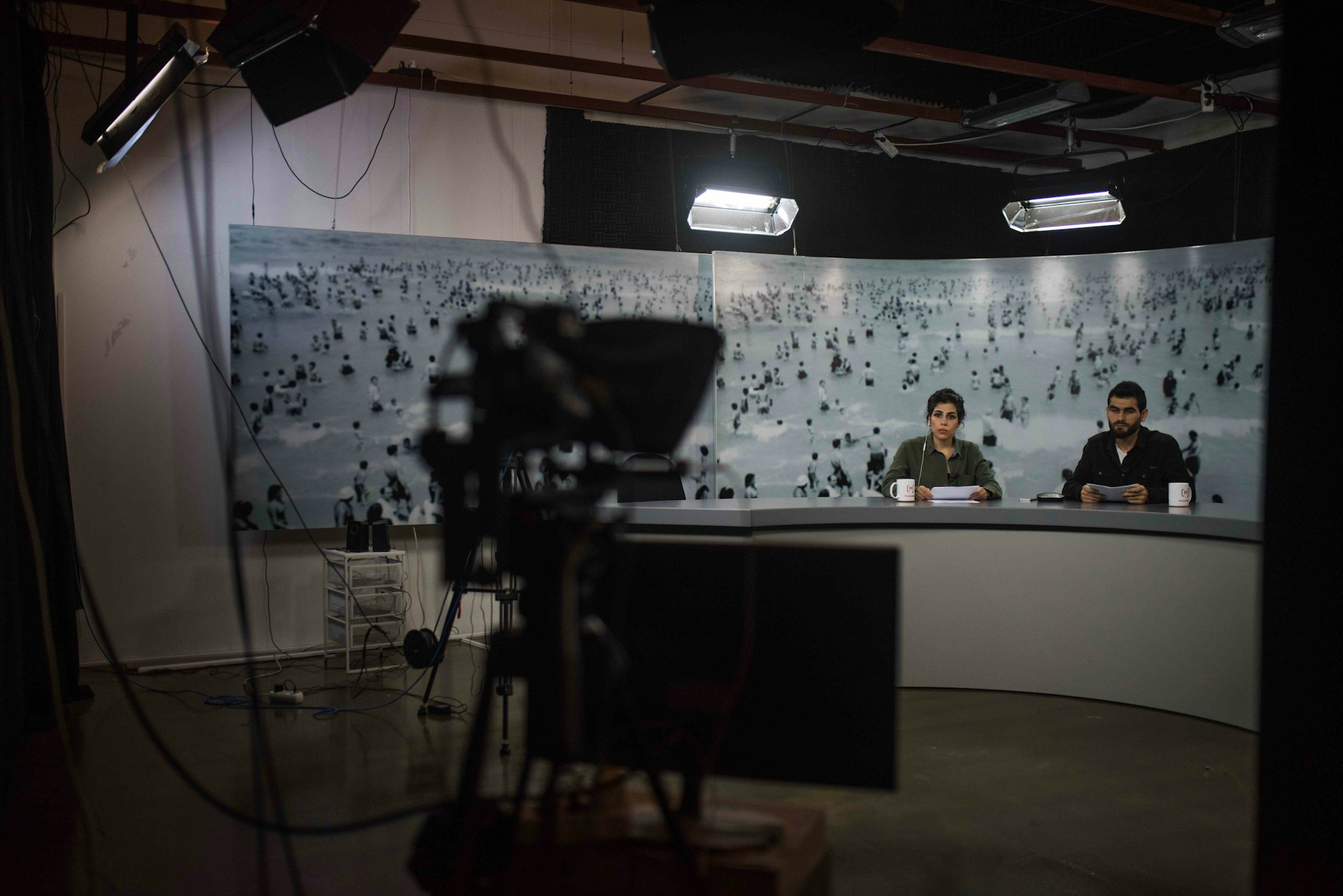
As for Hisyar, Julide and Çağrı, the students, they must first graduate to conceive a plan for the future. Julide worries she will not be able to work in academia in Turkey, but has set her eyes on a possible career in journalism. In prison, she failed two of the five university courses she took.
Hisyar, on the other hand, attends his lectures twice a week, teaches Kurdish to a private student and has not been able to reconcile his future plans with the reality of his situation. “How can I plan?” he asks.
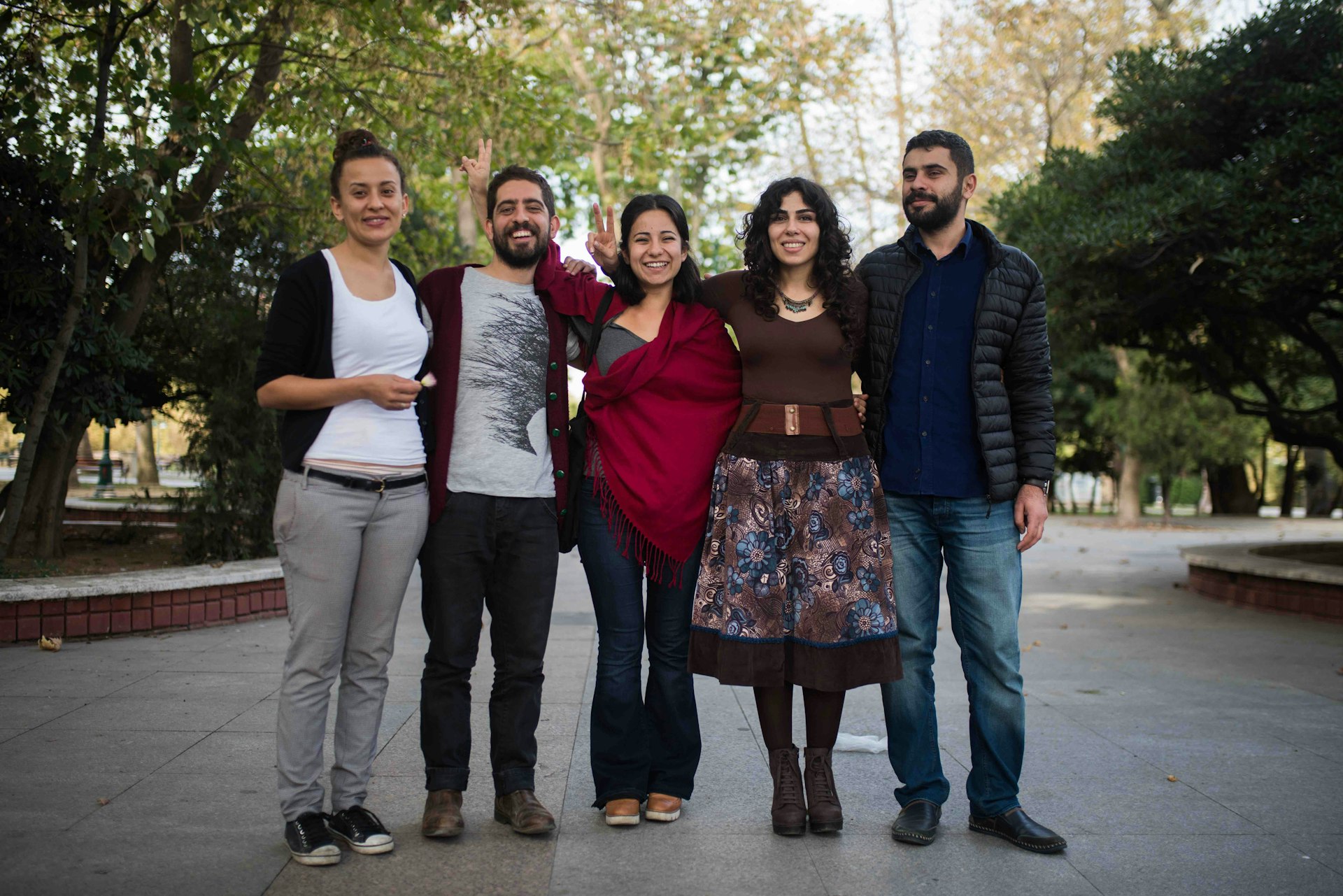
“This is not a tragedy for us,” says Çağrı. “We don’t understand our lives like that.”
The group expects the trial to continue for at least one more year. None can foresee the outcome and some are more hopeful than others. However, they all agree on one regard: Their situation is not extraordinary or unusual. “[Our case] is just another brick in the wall,” says Heja. “People will forget about us.”
Enjoyed this article? Like Huck on Facebook or follow us on Twitter.
